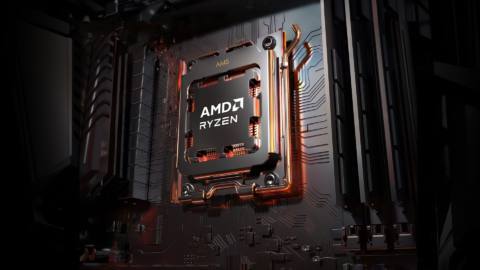
In this week’s DF Direct, the team discusses a range of topics but it’s the subject of the Ryzen 9000/Zen 5 CPU reviews that made the biggest impression on me. Actually, it was a question raised by one of our supporters, asking about discrepancies in results between various outlets. We saw some reasonable, if modest, improvements comparing the new Ryzen 7 9700X against the last-gen 7700X, while others only saw fractional improvements: two to three percent is barely outside the margin of error in CPU-bound scenarios. So why isn’t there the same kind of consensus we more typically see in GPU reviews?
All of this relates to how tricky it is to get the measure of CPU performance in gaming – but the simple answer is that in a world where in-built game benchmarks only rarely stress the CPU, results will vary drastically based on the actual material being benched. Even the same game tested with the same components on identical settings can produce very, very different results – and this speaks to the diversity of tasks the processor is asked to tackle.
Going back in time here, I remember benchmarking The Witcher 3 using the Core i3 4130 up against AMD’s price-equivalent six-core FX-6300. In cutscenes and the open world, the i3 was faster. However, in the dense city of Novigrad, the FX-6300 ran a lot faster. So, which processor is actually faster? It all depends on what you test, but I’d say that whichever scene is more demanding overall – which area tanks frame-rate hardest – should be the focus of testing – and that’s the Novigrad run. However, both sets of data are valid as they both represent processor performance and both benchmarks together may illustrate the strengths and weaknesses of different CPUs. The question is, how deep do you want to go?
